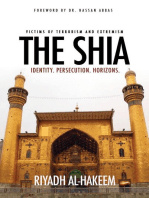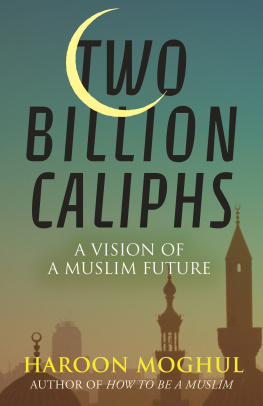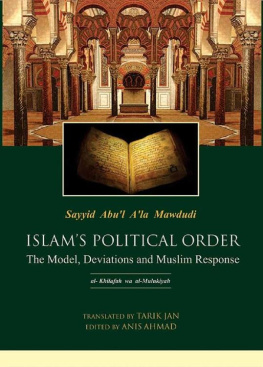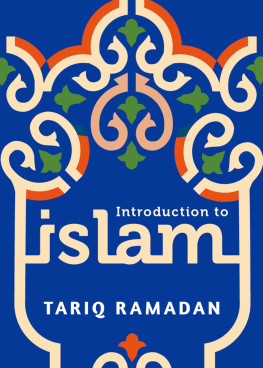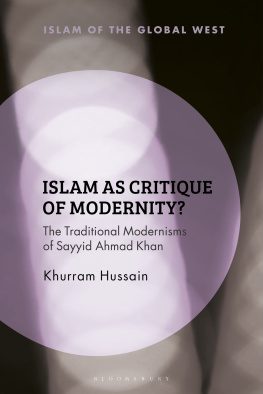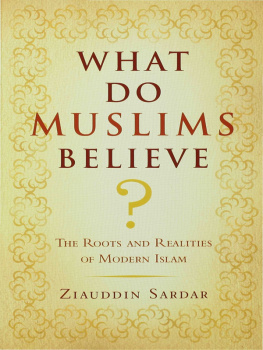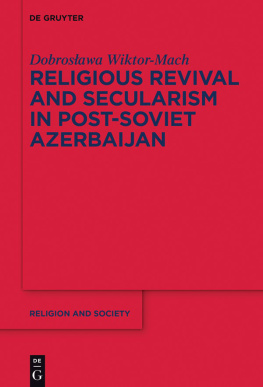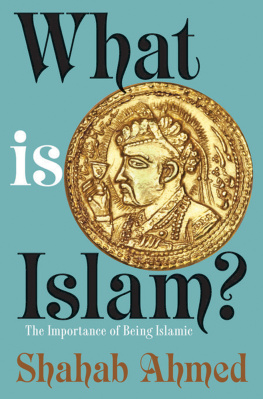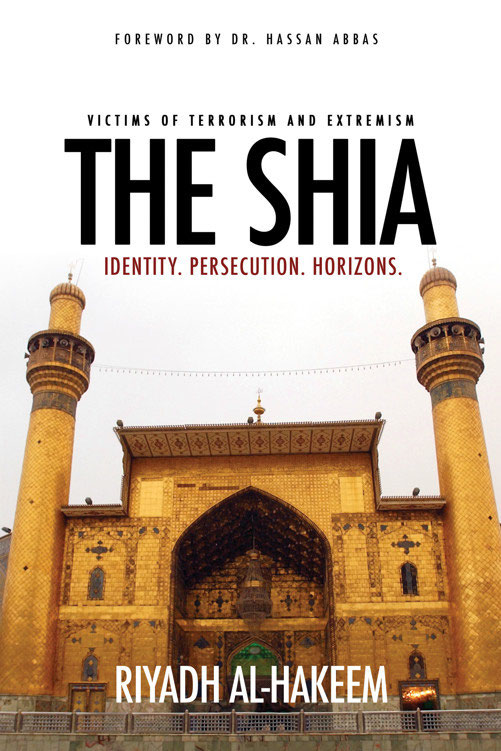
victims of terrorism and extremism
The Shia
Identity. Persecution. Horizons.
Sayyid Riyadh Al-Hakeem
Author: Sayyid Riyadh Al-Hakeem
Translator: Elvana Hammoud
THE SHIA. Copyright 2015 by Riyadh Al-Hakeem. All rights reserved. Printed in the United States. No part of this book may be used or reproduced in any manner whatsoever without written permission except in the case of brief quotations embodied in critical articles and reviews. For information address The Mainstay Foundation, www.mainstay.us.
Al-Hakeem, Riyadh, 1958
The Shia: Identity. Persecution. Horizons. 1st ed.
ISBN: 978-0-692-39029-0
In the Name of Allah, the All-compassionate, the All-merciful
Praise belongs to God, the Lord of the Worlds
Peace and blessings be upon Your messengers and the last of Your prophets, Muhammad and his pure progeny
In dedication to those who have given us all
and asked for nothing in return
Table of Contents
Foreword
By Dr. Hassan Abbas
As the world grapples with religious extremism and consequent violence in the world of Islam, Sayyid Riyadh Al-Hakeem provides us a valuable opportunity to understand the political dynamics and theological debates within Islam. I had the privilege to have a long conversation with Sayyid in 2014 in Najaf focusing on the developments in the Muslim world. I was struck by his scholarly demeanor, thoughtful approach and creative thinking geared towards peaceful resolutions to the challenges faced by humanity today.
The Shia: Identity. Persecution. Horizons. is a penetrating historical account about Shia Muslims, enlightening us about their genesis, their struggles and most importantly their contribution to the Islamic faith. Unlike many similar efforts, this book is not a chronicle of ShiaSunni rivalries. The book is more focused on what the author believes to be the essence and spirit of Islam. He intelligently differentiates between issues that are linked to Muslim identity and others that are more profound in terms of foundations of faith. Sayyid Al-Hakeem, an accomplished scholar and jurist, is not only well qualified to teach us about this subject but his access to the corridors of learning and education in the Holy City of Najaf makes him among the most ideal people to undertake this task.
Sayyid Al-Hakeem introduces the book with an explanation of the principles of Islam adhered to and pursued by the Shia as taught by the Prophet Muhammad and his family. The book is written in a fashion that makes it accessible to all aspiring to acquire knowledge on the subject. It is written in a simple and straightforward fashion. The authors primary goal is to clearly present the basic facts without delving into more complicated and contested theological arguments. It explains all the central features of faith as understood and practiced by Shia Muslims ranging from the concept of Prophethood & Imamate to a variety of rituals. It presents brief but very useful profiles of the 12 Imams revered especially by the Shia. In addition, it serves as an introduction to how scholarly traditions amongst the Shia were institutionalized despite seemingly insurmountable obstacles. He also wisely separates the spiritual aspects from the political matters.
The second half of the book briefly outlines the rich history of Shia Muslims as a people and a vibrant culture. The Shia Muslim community has spanned not only the Middle East and modern-day South Asia but various other parts of the world as well. The author then directs his efforts towards exposing the anti-Shia political hostilities in a historical context. He brings their story to the present by scrutinizing their current expressions that are obvious in the shape of current power struggles across the Muslim world. He deserves credit for providing a concise and credible historical account of how various Muslim rulers and regimes targeted sacred places of Islam revered by Shia Muslims in a systematic and coordinated fashion. It is a miracle that both Shia Muslims and their discourse have survived such tyranny and brutality. The passion of defiance against oppression and standing up to bigotry indeed has been the hallmark of Shia history. The Muslim dynasties that ruled over the Middle East for centuries knew well where the challenge to their dogmatism and autocracy could come from. Thus, a concerted effort to silence the Shia (as well as some other Muslim communities) reigned.
From the provocative Islamic revolution in Iran to the increasingly important role of Ayatollah Sistani and the religious establishment in Najaf, the consequences of the empowerment of Shia have varied. For the current power centers in Middle East, this Shia Revival was seen as a challenge to their ways of governing. Globally, this is also seen as rebalancing the power inside the world of Islam. Shia population may be approximately 15 to 20 percent of the total Muslim population worldwide; however, in the Arab heartland it appears to be more of a 40/60 ratio. In relevant geopolitical and economic terms, Shia Muslims are mostly dominant in the oil producing regions of the Middle East.
This poignant and well-timed analysis of the Muslim dynamics brings great clarity to the complex series of events shaping the Muslim world today. It is a must read for both Muslim and non-Muslim audiences who are interested in understanding a Shia perspective that is written with the objective of pursuing inter-religious harmony and peaceful coexistence, encouraging tolerance and defeating sectarian agendas.
Professor Hassan Abbas lives and teaches in Washington, D.C. and is author of The Taliban Revival: Violence and Extremism on the Pakistan-Afghanistan Frontier (Yale University Press, 2014).
Introduction
In the name of Allah, the All-compassionate, the All-merciful
O mankind! Indeed, We created you from a male and a female, and made you nations and tribes that you may identify yourselves with one another. Indeed the noblest of you in the sight of Allah is the most God wary among you. Indeed Allah is all-knowing, all-aware. (Quran, 49:13).
Indeed those who have faith and do righteous deedsit is they who are the best of men. (Quran, 98:7). In reference to faithful and righteous of this verse, The Prophet said to Imam Ali, They are you and your Shia.
Since the dawn of time, mankind has endured the tyranny of dictators and braved the consequences of discrimination and prejudice be it religious, national, racial or ethnic. With the progression and advancement of humanity, culturally and economically, intellectuals projected the gradual decline of despotic regimes along with the discriminative policies orchestrated by those in power. Nonetheless, genocide and terrorism have still prevailed to this day. Iraq is a particular example of being ravaged by such senseless oppression and tyranny.
The mass murder of innocent civilians carried out by Saddam Husseins dictator regime and the extremist Salafist organizations that terrorized the Iraqi people since his fall are still vivid in the hearts of Muslims across the world. Oppressive movements like these, with the consideration of todays day and age, became a deep concern for all those affected in and outside the region. Discussions on religious extremism and combating terrorism have taken a front row seat in political, social, economic, and religious dialogue across the globe. Unfortunately, Islam is often the target of finger pointing by some pundits who are quick to associate the terrorists with the religion itself simply because the terrorists claim that their actions are in Islams name.
Next page
